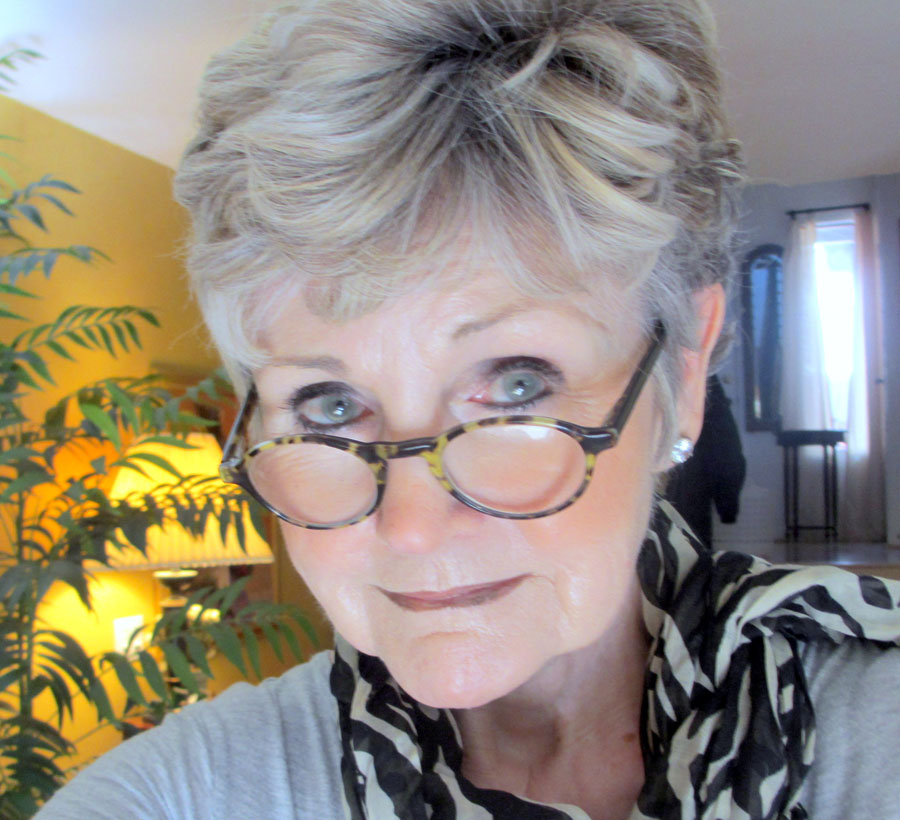

Katharine Lowrie is founder and owner of Precis (www.theprecis.com), a service that writes and publishes obituaries.
Katharine Lowrie often introduces herself as someone who talks to dead people. It might be a bit more accurate to say she talks about dead people. You see, Ms. Lowrie is a professional obituary writer– a member of the special group of individuals who have the chance to inspire us with the stories of people who otherwise we might never hear about.
Ms. Lowrie’s career didn’t start with a calling to write about the newly dead. She was a California news reporter who cut her teeth on beat stories, features, and celebrity profiles. Her introduction to working in the time honored genre of the obituary came when her mother passed. It fell to Kathy to memorialize her mother with the written word. After seeing her story, friends began to ask Kathy to put her special skills to work for their loved ones. Before she knew it she was a full-fledged professional obituary writer. Now her company, Précis, pens both traditional and unconventional memorials for people all over the country.
We recently chatted with Katharine Lowrie about the art of obituary writing, how it impacts society, and what it means to her.
Did you find that your perception of death and dying changed after you became an obituary writer?
I find the field fascinating. If I’m speaking at an event I’ll start out by saying something like “My name is Kathy Lowrie and I talk to dead people.” If I say I write obituaries they say “ewwww…. Wow… that must be sad or depressing”. On the contrary, it’s absolutely fascinating and inspiring and you learn so much about people. Usually the families have never had anyone write a real story about their lives and they misconstrue what the important aspects are. They want to give you a lot of lists: where they went to school, and what they did–it’s usually just a lot of boring statistics. So getting to the heart of who someone is in life is really very interesting.
What do you think is the most important role of the obituary is in today’s society?
It’s to go beyond the statistics. To reach beyond where they went to school, what they graduated in, and what their professional job was. More to get a feeling for the personality, what moved them, what they did in terms of their impact on their world. I usually like to get at least one or two people to speak about the person–to give more of a perspective on their lives.
I’m working on one right now, a very lengthy piece for a man who wants to write his own obituary. He’s quite a mover and shaker in his community and he wants to include everything. That’s fine for my online site because I can write as long as I want to and use as many pictures as he wants. But for a newspaper, they’re going to look at maybe the first page of something like this. I try to get most of the information crucial to who the person was in the lead–in the “song and dance” area, as they call it in the New York Times Obituary Formula. I think he mainly wants a factual backstory for reporters, he wants to get the facts straights.
Do you think that obituaries play a part in the grieving process?
It’s wonderful for people to talk about their loved ones because very soon after someone dies it’s like “well go on with your life, get over it.” Other people don’t want to really discuss that person or even a pet. But people, even way after the fact, like to talk about their loved ones. The sad thing is that you forget if you don’t get a story down right away. We just forget some of the important things about the deceased. So that’s another reason to get it on paper–to record who they were beyond the list of statistics.
Do you ever find yourself getting emotionally invested in the person you are writing about?
I really do. There was one young woman whose loved one had committed suicide. He was in his early 30’s and had depression. The family had the official obituary written and when my client read it she found it wasn’t representative of who he really was. She wanted to tell her story of who he was and their life together. It was really interesting because the young man’s sister eventually wrote to me and said she was glad I did this because this was really him and the family just didn’t get it right—his own parents.
Are you seeing an increase in the number of people who want to write their own obituaries?
I have definitely seen that because I have several of them now. I have one in my queue that I wrote in 2011 and I just had called her recently (we’re writing about her husband). I was wondering if she forgot to let me know if something happened. It’s kind of a hard conversation because I’m calling to see if he’s still with us. He was, as a matter of fact! That is sitting in my queue and it’s ready to go. They both worked on it together. I do get more calls for that than I did in the beginning. I know more people are doing it. I just can’t give you any statistics

That’s really funny. I’ve thought about it because I’m sure my daughter and my sisters and everybody else would want something. I would probably do it in a humorous way but I haven’t yet.
My grandson who is a senior in high school is taking a class called “Death” and he had to write his own obituary. I thought it was so fantastic and it was kind of fun to give him ideas–be sure to say that you lived a long life and that in your profession you made a ton of money and that you bought a yacht. We were kidding around about it. I haven’t seen what he actually wrote yet but I was really tickled about it.
What advice would you have for someone who is preparing to write their own obituary?
I would probably send them to the New York Times Obituary Formula. It’s a bit of a help and I still use it although my stories are more profiles. For example, it tells you about the “who” phrase–what they call a mini obit–what you usually start an obituary off with. I don’t always use that but for the novice person it’s a good place to start. The full obit formula breaks it down into what goes where and what they call the “song and dance”–a few sentences about the person’s life and what made them distinctive, rather than going right into “he was born on July whatever.”
Why do you think we are fascinated with obituaries?
I really don’t know because there is a whole legion of people who love to read them. I do think some of the most interesting ones are the stories by professional writers who make an attempt to profile someone unusual or unexpected like a janitor or a homeless person. Every life has a great story. It doesn’t matter who you are, there are fantastic stories. I just think that people like to read about people–dead or alive.
How do you think the world of obituaries has changed?
All the obituaries, unless it’s a celebrity or a politician, are now a paid ad and people have to write in very limited space. If it’s going to be in print it’s so horrendously expensive. That’s why people are going more to the funeral home web page or Legacy.com. They can write something there so it makes it easy on them and they’re just satisfied with that. It’s really too bad they don’t want a professional writer to profile their loved one for them. The other thing is video, a lot of people are doing that.
Do you have something to add to this story? Please add it in the comments.










Jean Mathis from Rice Mortuary
Hi Kathy,
Please contact me ASAP to give you the name of a client that is interested in your services.
Thank you,
Jean
Rice Mortuary – 310-792-7599
Bonnie
What a great article! I love the idea of telling the deceased person’s story s opposed to statistics and dry material.
Katharine Lowrie
I think Molly did a superb job writing about my obit business. It is so fascinating and fulfilling, and clients get so into the writing process with me. They come up with things they never would have thought of on their own. Thank you Molly!